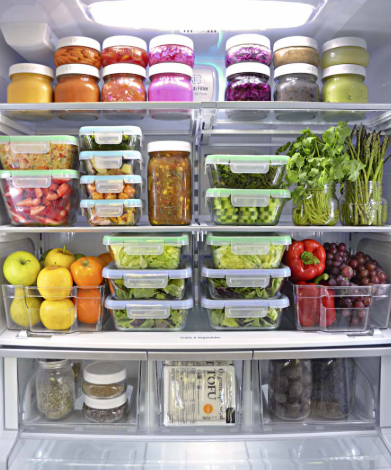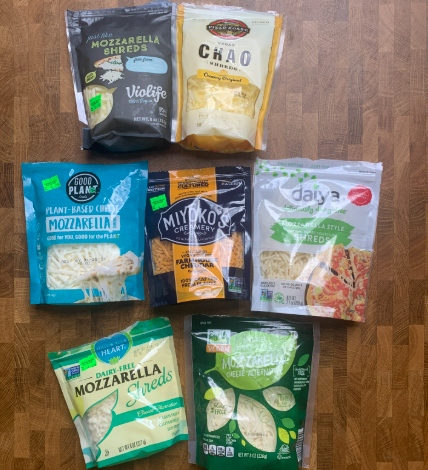
How to Stock Your Fridge for a Healthy Plant-Based Lifestyle
When I first transitioned to a plant-based diet, I quickly realized I had no idea what to store in my fridge. Without meat or dairy, it became a chaotic space filled with half-finished experiments and forgotten condiments. Over time, I learned that the fridge plays a huge role in how easy and enjoyable it is to maintain a plant-based diet.
A well-stocked fridge is not only a time-saver but also makes it much easier to prepare nutritious meals. With a fridge full of fresh fruits, vegetables, plant-based proteins, and sauces, you’ll find it simpler to whip up healthy meals and avoid the temptation of last-minute takeout or processed options. The best part? It’s cost-effective too!
In this post, I’m going to share tips that will transform your fridge into a plant-based powerhouse. By the end, you’ll have the tools to make mealtime stress-free and enjoyable.
Why a Well-Stocked Fridge Is Crucial
Having a fridge full of vibrant, fresh ingredients ensures that you’re always ready to cook meals that are both delicious and nourishing. The idea is simple: when healthy ingredients are easily accessible, you’re much more likely to prepare a meal from scratch instead of relying on takeout.
When I started my plant-based journey, I initially struggled with figuring out what to buy and how to store it. But once I got the hang of it, I realized that it’s all about understanding what to store, how to store it, and learning how to create balanced meals from your fridge’s contents.
1. Opt for Seasonal and Local Produce
Seasonal produce is always the freshest and tastiest, so try to focus on buying fruits and vegetables that are in season. For example, winter tomatoes often lack the flavor and juiciness of their summer counterparts. Local produce not only tastes better but is also a more eco-friendly choice, as it doesn’t require long transportation times.
Supporting local growers can be a wonderful way to connect with the community and ensure your food choices are more sustainable. That said, I still buy some non-local items like avocados, but I balance these with other in-season options.
A great tip is to freeze excess seasonal produce for later use. I stock up on fruits like blueberries in the summer and freeze them to enjoy year-round.
2. Choose Organic and Non-GMO When Possible
Organic, non-GMO products are better for both your health and the environment. Conventional farming practices can involve the use of harmful pesticides that affect both the land and our bodies. While it might not always be possible to buy everything organic, prioritize organic options for the fruits and vegetables most affected by pesticides.
For an easy guide on what to buy organic, refer to the Environmental Working Group’s “Dirty Dozen” list, which highlights the produce with the highest pesticide residues. On the other hand, the “Clean Fifteen” list identifies foods that are safe to buy conventionally grown.
3. Be Mindful of Packaging
Packaging is something we all need to be more mindful of. While many stores are making efforts to reduce waste by offering reusable bags and biodegradable options, there’s still a lot of unnecessary plastic in the produce section. Whenever possible, choose unpackaged or minimally packaged produce.
Instead of buying pre-chopped veggies or fruit, which often come with excessive plastic, try buying whole produce that you can prepare yourself. If you need bags, make sure to bring your reusable produce bags or look for biodegradable alternatives. Nature has already provided its own packaging for many fruits and vegetables, like bananas and oranges, so make use of it!
4. Storage Matters
How you store your plant-based foods can significantly affect their freshness and longevity. The right storage can prevent food waste and keep your meals fresh longer. For example, glass containers are an excellent option because they don’t absorb odors and make it easy to see what’s inside. They’re also microwave and dishwasher safe.
Not all food needs to be stored in the same way. For instance, leafy greens should be washed and stored in an airtight container, while most other produce should be stored unwashed to avoid excess moisture. For optimal storage, I recommend investing in storage solutions like Debbie Meyer GreenBags, which extend the freshness of produce and are a great eco-friendly alternative to single-use plastic bags.
5. Plan Ahead
Taking a little time to plan your meals for the week can save you time, money, and energy. Start by doing an inventory of what you already have in your fridge. Items like plant-based milks, greens for smoothies, or bread that you use frequently should always be on your list.
Once you know what you need to replenish, plan a few plant-based meals that you can batch cook. This will ensure that you always have nutritious meals ready to go, without spending too much time in the kitchen. Planning ahead means less stress and more time to enjoy your food.
Conclusion
A well-stocked fridge is the foundation of an easy and enjoyable plant-based lifestyle. By filling it with seasonal produce, organic foods when possible, and keeping storage in mind, you’ll ensure that your fridge is ready for any meal. With these simple tips, you’ll be able to enjoy delicious, healthy meals without any of the stress. Happy fridge-filling!






